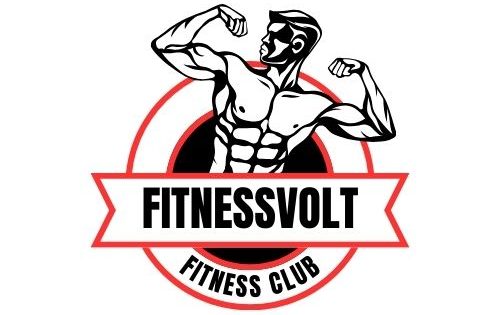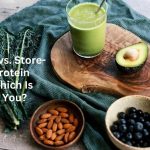There has been an age-old battle in the nutritional world: protein shakes vs whole foods. Which one is the healthiest for your dietary requirements? For every athlete looking to increase weight in muscle mass or even if you’re just someone always aiming to create a healthier way of life being more aware of the differences between protein powder and whole foods is invaluable.
Protein is vital for your health it’s a structural component of the body and helps to maintain, grow, and repair tissues like muscle and bone, in addition to supporting immune function. The way you get protein can have a huge impact on your health.
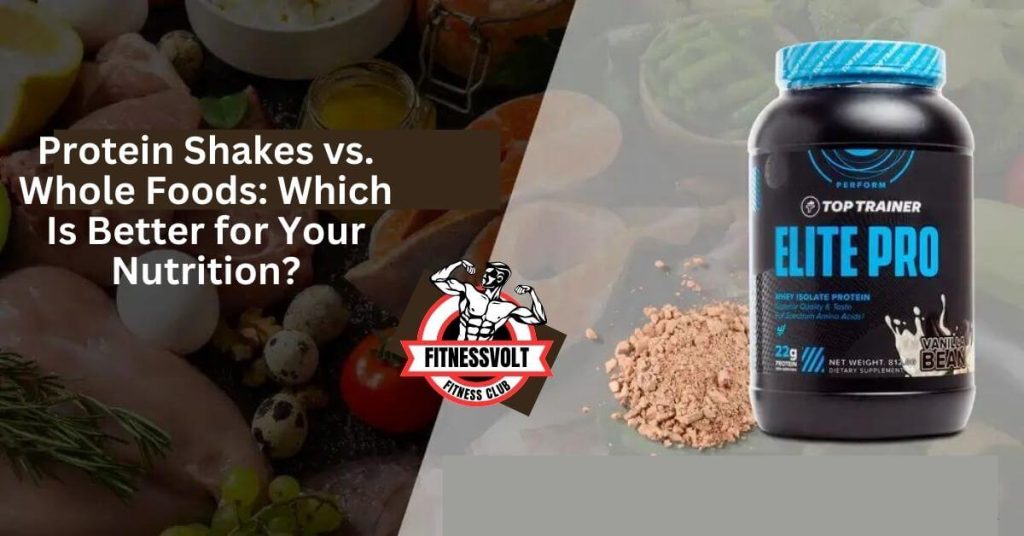
Understanding Protein Needs
Before we get into the comparison between protein shakes and whole foods, it is necessary to understand why it is important. Life is built up from proteins. Again, they are needed for tissue repair, enzyme and hormone production, and immune support. The everyday need for protein differs among individuals and is dependent on your age, intercourse, and diploma of bodily activity.
Factors Influencing Protein Needs
Age and Gender Considerations
Protein requirements depend on age group For example, children and teens on the grow may require more protein to help them become strapping young men. Likewise, older adults would benefit from additional protein to reduce muscle atrophy.
Activity Level and Lifestyle
Sport or physical labor Athlete consumption Higher than an individual that is sedentary Physical activity creates microtears in muscles that are healed with the help of protein consumption
Special Dietary Needs
People who are on certain diets, such as vegan or vegetarian, should look for more plant-based sources of protein since they do not consume animal products. This can impact the type and quantity of protein ingested.
What Are Protein Shakes?
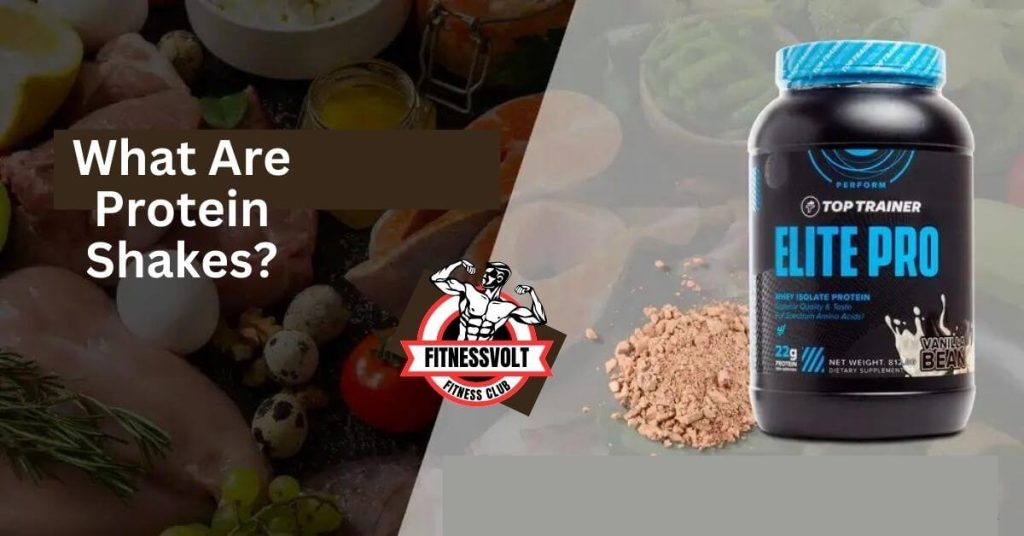
A protein shake is a type of drink that consists of protein powder and water or milk along with another kind of liquid. This could be whey, casein, soy, or plant-based proteins for example. These are infused with a lot of protein in powder form and you can make them to your liking or simply buy ready-to-drink protein shakes bottles.
Pros of Protein Shakes
Easy to Use: The simplest thing about protein shakes is that they are very convenient. Here, I discuss the reasons for their popularity and why people eat them, they are convenient and fast to prepare in this busy world and they make a quick protein addition post-workout.
Fast Assimilation and Muscle Recuperation: One of the benefits of protein shakes, most especially whey is a very fast assimilation; this works with quick recuperation. This is especially useful straight after a workout when the muscles need rapid access to protein for the recovery process.
Protein powder can be: Protein shakes can be customized for your particular dietary needs Chances are if you are lactose intolerant, vegan, or need something low carb there is a protein shake that fits the bill.
Cons of Protein Shakes
Fillers & Artificial Sweeteners: All protein shakes are not created equal. Now follow that up with a cold yet delicious smoothie, most of the time loaded with sugars and artificial sweeteners and flavors or other additives that will defeat their purpose just now. Be sure to read the labels carefully and only choose shakes with a few ingredients.
Insufficient Other Vital Nutrients Found In Whole Foods: Regular protein utilization delivers a satisfactory measure of amino acids yet does not give other supplements likewise found in general nourishments. These meal replacement shakes are also not for substituting actual meals in the day; doing that can lead to several complications such as rickets and scurvy.
But over-reliance + potential dietary imbalances: Protein shakes can also lead to an unhealthy reliance on supplements and the imbalance of vitamins that occurs as a result. They should be a complement to a healthy diet, but not the entirety.
What Are Whole Foods?
Whole foods are foods that are as close to their original state as possible. Protein Whole Foods Beef Poultry Pork Fish Seafood Beans Nuts Tofu These things contain protein, but they have other important nutrients that help with overall health too.
Pros of Whole Foods
Additional Nutrient Profile: Whole foods provide a lot more than just protein. They are a good source of vitamins, minerals, fiber, and healthy fats needed for overall health.
Whole foods: provide hundreds of thousands or tens of millions of nutrients that work synergistically with one another, and many contain things like vitamins, minerals, and fibers not found in individual fiber supplements. For instance, beans and legumes contribute not only protein but also fiber and iron.
Healthy Unprocessed Foods: Consuming whole unprocessed foods ensures you are not consuming extra sugars, sodium, and unhealthy fats that are typically added to processed products. In the long term, this means better health outcomes.
Cons of Whole Foods
Time commitment and convenience: unlike protein shakes (which can be time consuming) whole foods, require preparation. This disadvantage might not be suitable for those who are too busy or unable to cook.
Whole foods: Have different protein contents and need to be consumed in varying portion sizes. That said, this also means protein intake becomes an issue to gauge, and keep track of daily.
Allergies or dietary Restrictions: Whole foods can sometimes be the cause of some intolerances are allergies so it´s essential to take note of this kind of N=1 experimentation. Nuts and dairy for example are typical allergens that need to be eliminated in some.
Comparing Nutritional Profiles: Protein Shakes vs. Whole Foods
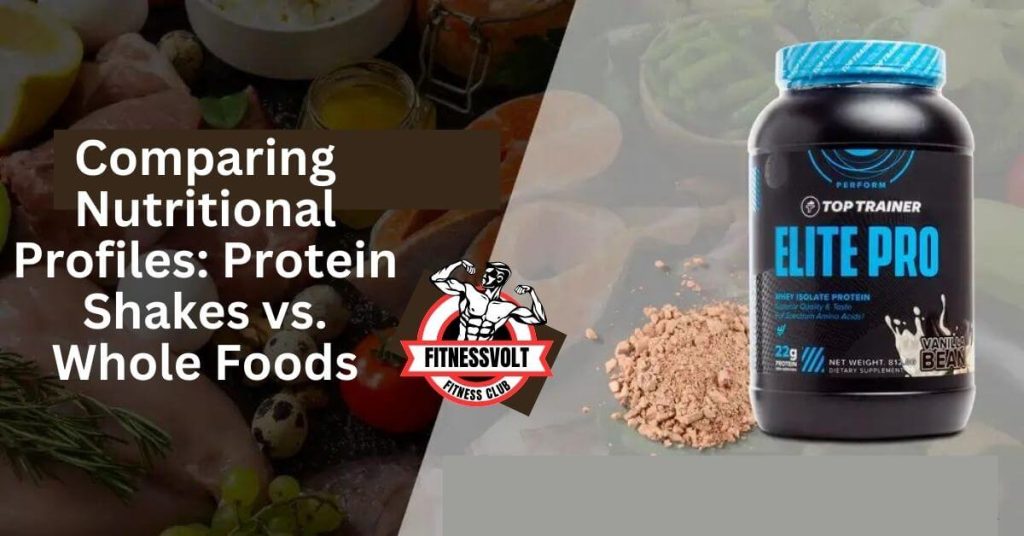
Protein quality, bioavailability, caloric content, and nutrient density are all factors to consider when comparing protein shakes to whole foods.
Whole Foods Benefits Proteins Quality and Bioavailability: Whole foods usually offer complete proteins that have all the essential amino acids your body needs. But those, too, provide high-quality protein with a favorable bioavailability profile despite what many will have you believe.
Whole Foods Usually have More Nutrient-Dense Less caloric Content That gives you protein and a host of other nutrients that have none of the sugars or any extra fats found in some protein shakes.
Other Health Benefits: Whole foods help you eat a more balanced diet and prevent chronic disease, aid in digestion, improve your quality of life and keep your waistline down. These benefits are broader than protein shakes as you might have noticed.
Impact on Muscle Building and Recovery
There is a place for both protein shakes and whole foods in muscle building and recovery. They are high in amino acids and easily digestible, which makes them a favorite post-exercise drink. However, you’ll get a slower uptake of amino acids with whole foods which is better for long-term muscle maintenance and health overall.
Cost and Accessibility
The price of whole foods in general can change based on where you live, the time of year and what is available to you. Sure, protein shakes may be a more predictable price, but good-quality processed ones can also cost quite a bit. Home storage and accessibility make protein shakes a much easier source, rather than whole foods which might mean shopping for food more often if you prefer to eat then overcook every meal from fresh.
Environmental Impact
In any event, protein sourcing is here not going away. Many protein shakes are made from animals, which is not sustainable and you should consume at least some of your calories in the form of whole foods! Whole plant-based options tend to be more sustainable. The trend in plant-based protein shakes is one that is actually a bit more eco-friendly. Selecting a more sustainable protein choice on your plate is just as important.
When to Choose Protein Shakes
Protein shakes are ideal in certain situations:
- For Athletes: After intense workouts for rapid recovery.
- For Busy Individuals: Who lack time to prepare meals.
- For Those with Specific Dietary Needs: Who need a controlled protein intake without extra calories or specific allergens.
When to Choose Whole Foods
Most of you might think that the best choice is whole foods because they provide a rich variety of nutrients.
- To ensure overall health: To offer a varied diet to address nutrition, not just calories.
- For The Longview: Whole foods leads to sustainability in health practice
- Individuals with Specific Health Conditions: (ie: Digestive, allergies that NEED to eat whole natural foods not pre-processed foods)
Finding a Balanced Approach
The answer to the best nutrition could be a mixture of protein shakes and whole foods. This could mean eating whole foods for your main meals and having protein shakes post-workout. This way, you get the best of both worlds–quick digesting protein without sacrificing all of the nutrients the whole food sources provide.
Conclusion
Therefore, are protein shakes more beneficial for nutritional purposes or we should stick to whole foods? There isn’t an answer that fits everyone as it all depends on your own needs, lifestyle, and health goals. They are both important parts of a healthy diet. Protein shakes are easy to make and absorb, however, whole-food sources of protein include an array of essential nutrients in them. Knowing your own needs and keeping them in mind may help you to make more favorable selections to stay health.
